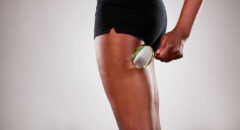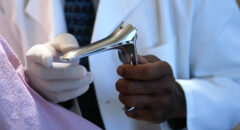 Nutritional supplements can be very beneficial as part of a treatment plan for optimal health. If you are an athlete looking for natural ways to enhance your performance, then supplements may be beneficial for you. Benefits of taking nutritional supplements can include building collagen and repairing muscle, just to name a few.
Nutritional supplements can be very beneficial as part of a treatment plan for optimal health. If you are an athlete looking for natural ways to enhance your performance, then supplements may be beneficial for you. Benefits of taking nutritional supplements can include building collagen and repairing muscle, just to name a few.
Here are eight natural supplements to consider. Make sure to consult with a professional like naturopathic doctor to make the perfect treatment plan for you specific needs.
1. Omega 3 Fatty Acids (Fish Oil) supplementation leads to improved cardiovascular health and function, improved lipid profiles (lower triglycerides), improved brain function and mental acuity, and it has powerful anti-inflammatory properties. Athletes and those with body composition goals should start with 3,000 mg of fish oil spread out in 2-3 servings (it only lasts in the body about 8 hours) and work toward taking up to 6,000 mg per day.
2. B-vitamins increase energy production and are neurotransmitter cofactors, so they help improve our mood, and they help us detoxify which we need after exercise. The process of building and repairing muscle depletes B-vitamins so if you’re lifting heavy or damaging your muscle tissue in your workouts or job, you need to take extra B-vitamins to help the rebuilding (strengthening) process because you are burning through them at an alarming rate. Take this supplement in the morning, as the B-12 will keep you awake.3. Magnesium is important to athletes because it regulates heart rhythm, allows muscles to contract and relax properly, reduces blood pressure and is necessary to produce ATP (the main source of energy in our cells) which must be bound to a magnesium ion in order to be biologically active. This is best taken post-workout on an empty stomach. Sedentary individuals need 600 mg a day and larger athletes in heavy training mode could do up to 2,000 mg a day.
4. Vitamin D works with calcium to improve bone density, helps reduce inflammation, risk of colon and breast cancer, improves mood and upper respiratory health by aiding the fight against infections from viruses and other pathogens, and allows the brain to release melatonin so we can fall asleep easier. Vitamin D is most effective when taken at night, about an hour before bedtime.
5. Protein, if taken within 10 minutes of training, will reduce the amount of stress hormones (mainly cortisol) released. 20-30 grams per hour is the maximum a body can digest and you only need .8-1.4 grams of protein per 1 kg of lean mass each day. Too much protein leads to body acidity which leads to many other problems. The right amount of protein provides energy, repairs tissues and reduces muscle soreness. Protein should be eaten – from primarily animal sources – throughout the day and most certainly within 10 minutes of training. Whey protein is a highly marketed protein and is fairly inexpensive so it is frequently used by athletes.6. Vitamin C is mostly present in fruits which contain fructose. If you are watching your sugar intake, there are products out there, like Bio Energy C, that use Ribose instead so you can avoid the insulin response associated with fructose intake. Ribose has also been proven to reduce oxidative stress (damage created by strenuous exercise) and aids in the removal of lactic acid as does vitamin C. Vitamin C aids the production of ATP, helps wound healing, and is a cofactor to building collagen and repairing muscle. Athletes should take a minimum of 4,000-8,000 mg a day and upwards of 16,000 mg a day as it is very difficult to overdose on vitamin C. During and post-workout are the optimal times to take vitamin C.
7. Coenzyme Q10 (CoQ10) is the ONLY anti-oxidant found within cells and it allows the mitochondria to produce ATP. It also gets rid of lactic acid. CoQ10 is known because of its important implications to the heart, which is high in CoQ10. It is depleted from “stressful” athletic training/exercise. There have been a number of young, ultra-distance runners who've dropped dead of cardiac failure in recent years and the discovery was the lack of CoQ10 in their hearts which caused scarring and damage from years of training abuse. Anyone who participates in strenuous training should take CoQ10. The best, most usable form of CoQ10 is ubiquinone and delivered in oil since fats enhance the absorption of CoQ10 so it can enter the cells. A recommended dosage of CoQ10 is 100-200 mg a day. If you are an athlete, try increasing your dosage when you are approaching an event to improve performance, endurance, strength and recovery.
8. Beta-alanine primarily works its potential performance-boosting effects by raising intramuscular levels of carnosine, which is a dipeptide formed from beta-alanine and histidine. Carnosine can be synthesized endogenously, mainly in the liver, but as holds true for many nutrients, sometimes the body’s capacity to produce it isn’t sufficient to support optimal health, or, in the case of athletes, supplemental amounts above that which the body can produce may offer additional benefits. There is typically a large pool of bioavailable histidine in the body, making the availability of beta-alanine the rate-limiting step in carnosine synthesis.









